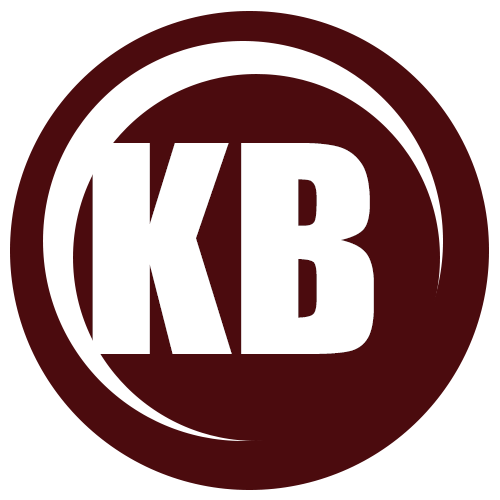Beginning in the mid-1960s, violence erupted in several cities, as the country suffered through long, hot summers of riots or the threat of riotsin the Watts district of Los Angeles (1965), in Cleveland, Ohio (1966), in Newark, New Jersey, and Detroit, Michigan (1967), in Washington, D.C. (1968), and elsewhere. The stakes in this year's presidential campaign are high. The Wooden Horse: A Gift "[47] Ronald Reagan's speech on Goldwater's behalf, grass-roots organization, and the conservative takeover (although temporary in the 1960s) of the Republican party would all help to bring about the "Reagan Revolution" of the 1980s. The Johnson campaign broke two American election records previously held by Franklin Roosevelt: the most Electoral College votes won by a major-party candidate running for the White House for the first time (with 486 to the 472 won by Roosevelt in 1932); and the largest share of the popular vote under the current Democratic/Republican competition (Roosevelt won 60.8% nationwide, Johnson 61.1%). Meanwhile, as Johnsons reform consensus gradually unraveled, life for the nations poor, particularly African Americans living in inner-city slums in the North, failed to show significant improvement. President Johnson had been president since he took over from President Kennedy when the latter died. How did the passage of the Voting Rights Act of 1965 affect voter registration rates in the United States in the decades that followed? The Democratic campaign used two other slogans: "All the way with LBJ";[This quote needs a citation] and, "LBJ for the USA". Both Rockefeller and Scranton also won several state caucuses, mostly in the Northeast. Sign up now to learn about This Day in History straight from your inbox. As each new American escalation met with fresh enemy response and as no end to the combat appeared in sight, the presidents public support declined steeply. . Both the Civil Rights Act of 1964 and the Voting Rights Act of 1965 were enacted as a consequence. "A man of gargantuan appetites and ambitions, Johnson wanted nothing less than to break the record of his hero, Franklin Delano Roosevelt, who had greatly expanded the role of the federal government in American life. On July 2, 1964, U.S. President Lyndon B. Johnson signs into law the historic Civil Rights Act in a nationally televised ceremony at the White House. As his popularity sank to new lows in 1967, Johnson was confronted by demonstrations almost everywhere he went. Johnson took office on November 22, 1963 and emphasized the continuation of his assassinated predecessor, John F. Kennedy. [27] On July 30, South Vietnamese commandos tried to attack the North Vietnamese radar station on the island of Hon Me,[28] with the USS Maddox sufficiently close that the North Vietnamese believed it was there to provide cover for that commando raid. Barry Goldwater. Abraham Lincoln . They were correct. It is often called the most important U.S. law on civil rights since Reconstruction (1865-77) and is a hallmark of the American civil rights movement. Retrieved August 7, 2005. Dave Leip's Atlas of U.S. Presidential Elections. In 1966, Reagan would be elected Governor of California. [14] Goldwater had previously voted in favor of the 1957 and 1960 Civil Rights acts, but only after proposing "restrictive amendments" to them. Why did John F. Kennedy win the presidential election of 1960? Meanwhile, President Johnson was concerned he could lose the election by appearing soft on Communism. Moreover, his support of civil rights for blacks helped split white union members and Southerners away from Franklin D. Roosevelt's Democratic New Deal Coalition, which would later lead to the phenomenon of the "Reagan Democrat". Why did Grover Cleveland win the presidential election of 1892. His failure to honestly discuss how badly the war was going and to reveal the true costs of the conflict led to a credibility gap with voters. Source (electoral vote): "Electoral College Box Scores 17891996". Lyndon B. Johnson was the 36th president of the United States and was sworn into office following the November 1963 assassination of President John F. Kennedy. History. In early 1964, despite his personal animosity for the president, Kennedy had tried to force Johnson to accept him as his running mate. Indeed, a poll in June had indicated that more than three-fifths of rank-and-file Republicans favoured William Scranton, governor of Pennsylvania, for the party nomination. Our editors will review what youve submitted and determine whether to revise the article. In April 1963, they formed the Draft Goldwater Committee, chaired by Texas Republican Party Chairman Peter O'Donnell. Eisenhower's strong backing could have been an asset to the Goldwater campaign, but instead, its absence was clearly noticed. In one famous TV ad, the Johnson campaign showed a little girl in a flower-filled meadow. [25] A prominent Hollywood celebrity who vigorously supported Goldwater was Ronald Reagan. Johnson, Lyndon Baines | The Martin Luther King, Jr., Research and Why did LBJ drop out of the 1968 presidential election? The Presidential Election of 1964: Outcome and Significance - Study.com While every effort has been made to follow citation style rules, there may be some discrepancies. CIA Director William Colby asserted that Tracy Barnes instructed the CIA to spy on the Goldwater campaign and the Republican National Committee, to provide information to Johnson's campaign; E. Howard Hunt, later implicated as a ringleader in the Watergate scandal, disputed this, instead claiming the operation had been ordered by the White House. Who became president after Andrew Johnson? Both major candidates attended his funeral. The 1964 United States presidential election was the 45th quadrennial presidential election. Nevertheless, Johnson and an aide Kenneth O'Donnell agreed that Johnson "would have to respond firmly to defend himself against Goldwater and the Republican right wing". Civil Rights Act of 1964 - Definition, Summary & Significance [8] Johnson lost Louisiana, Alabama, Mississippi, Georgia, and South Carolina. This is the first election to have the participation of the District of Columbia, under the 23rd Amendment to the US Constitution. Its the second most prominent coronavirus strain circulating in the U.S. President Lyndon Johnson at the White House. This was notable, as it signified a shift to a more conservative-leaning Republican Party. Incumbent Democratic United States President Lyndon B. Johnson defeated Barry Goldwater, the Republican nominee, in a landslide. What did Andrew Johnson do after being president? He pushed a gaggle of major. What was the results of the 1964 presidential election? Farrington, Joshua D. (2020). The subsequent 89th Congress would pass major legislation such as the Social Security Amendments of 1965 and the Voting Rights Act of 1965. United States presidential election of 1964 - Britannica

